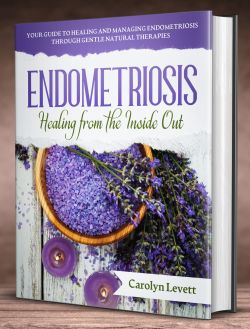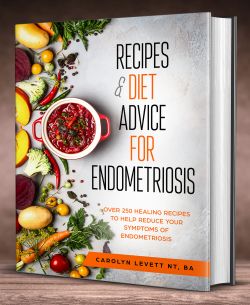Years of pain and heavy-duty pain medication
Years of horrific pain and taking huge doses of pain medication, which led Lora to finally find an endometriosis surgeon who could perform excision surgery. Only to find that the pain from post-surgical scars was worse than the pain she had before

This is Lora’s story ….
I am writing my story for all those women who, like me, have gone through the painful journey of having endometriosis. Even though millions of us suffer from this disease, it continues to be misunderstood in terms of its physiological and psychological impact on our lives, even among doctors. But most importantly, there appears to be little knowledge with respect to the type of treatment options that are available.
In fact, many of us go from doctor to doctor looking for a cure or simply relief, but often the answers are not helpful. As the years go on, the suffering become worse and the frustration and fear about what to do next only grows. By telling this story of my own personal journey, I hope that this will enlighten other women that they are not alone and that there is a lot of work that needs to be done on educating the public about this dreadful disease.
My journey began when I started to have my menstrual cycles as a teenager. My mother told me not to worry, because I was becoming a woman. However, the cramps were so excruciating that it became some of the worst times of my life. While most of my friends had light and relatively painless menstrual cycles, I didn't have it so easy.
I always experienced severe cramping and bleeding, headaches, fevers, cramping and nausea, which lasted for almost a week. Even at that early age, there were times when I just couldn't go to school due to the debilitating symptoms. As a result, I had to take several pills each day of Tylenol, Motrin, and Ibuprofen, often in combination.
As I look back, I cannot tell you how I didn't overdose on these pills. I also had to go to the emergency room several times.
Despite my obvious agony however, the doctor would either treat me with more medication, or would tell me that I didn't have anything because it was all in my head. Of course, as I continually suffered from Endometriosis, I quickly developed a very sceptical relationship with my gynaecologists. I say gynaecologists in the plural sense, because I have probably seen over 30 of them throughout the course of my life.
In my experience, the problem with gynaecologists is that they often misdiagnosed me with some other ailment or disease. Even when they did correctly diagnose me with Endometriosis, many of them simply didn't understand how to treat the disease. The first couple of times I went to see a gynaecologist no doubt epitomizes these problems.
I was 17 and living abroad in Costa Rica. After my gynaecologist took an Ultrasound scan of my abdomen, he somehow came to the shocking conclusion that I had a cancerous tumor in my ovary called a Teratoma. He told me that I had to immediately have surgery to remove my ovary and any other surrounding tissue that may be cancerous. Here I was, a young girl faced with the prospect of not only losing my womanhood, but possibly my life!
My father, who is a physician in New Jersey, told me to come back to the United States to get a second opinion from another gynaecologist. When I went to see the other gynaecologist, he told me that I didn't have a Teratoma, which was a great relief to hear. However, my relief was short-lived, as he further explained that I had Endometriosis. He then recommended that I needed a hysterectomy since I would probably never be able to become pregnant and would live in terrible pain the rest of my life if I didn't have the surgery.
For me, though, the thought of having a hysterectomy at my age simply wasn't an option for me. So, I decided to continue to live my life with the terrible symptoms, with at least the understanding that I knew what I had. As the years went on, the symptoms only became worse, as with the treatments I received from my gynaecologists. Most of them recommended that if I didn't want a hysterectomy, I had to take other medications or undergo other surgical procedures, the effects of which were often worse than the Endometriosis itself.
The most common solution was to take birth control pills, but I couldn't take them because I always experienced terrible symptoms, such as constant migraines, swollen legs, and nausea. I also came across one gynaecologist, who after my first visit, recommended that he “burn” my Endometriosis through a laparoscopic procedure. He also told me that this procedure would help my chances of getting pregnant.
I was 24 at the time and recently married. So, although it seemed like a hasty decision, I felt desperate to follow his advice. However, after the procedure, I had a burning sensation in my pelvic area that never did go away until many years later.
No doubt the worst treatment I ever received was taking Lupron, a medicine that caused my body to go into menopause. As my gynaecologist explained, the reason for taking this medicine was that it would stop my menstrual cycles, which would relieve me from the pain and other symptoms caused by Endometriosis.
My gynaecologist recommended that I should have this treatment for one year. After only a few months, I developed severe menopausal side effects, such as hot flashes, night sweats, mood swings, hair loss, insomnia, migraines, and vaginal dryness. But most significantly, I lost my peripheral vision in both eyes, and I had symptoms that mimicked Lupus, such as loss of muscle control and constant achiness all over my body.
Of course, my gynaecologist and the other specialists I saw each denied that Lupron was the cause of my symptoms, even though I had read otherwise. So, against the advice of my gynaecologist, I decided to stop taking the medicine. Although I never regained the loss of my peripheral vision, most of my other symptoms thankfully resolved.
But as I felt better from the terrible effects of Lupron, my Endometriosis symptoms had quickly returned. As the Endometriosis developed further, I started to experience more residual effects, such as stomach or intestinal pain. This meant that I had to see the gastro-enterologist almost as frequently as my gynaecologist.
Unfortunately, they too knew very little about Endometriosis and how it could affect my body. As a result, I had to undergo several gastro tests in order to look for suspected diseases like colon cancer, irritable bowel syndrome and Crohn’s disease. In the end however, none of these gastro diseases were ever confirmed, and I was left with even more questions in my mind as to what to do next.
Perhaps one of my saving graces from Endometriosis was that I was able to become pregnant, which for me was nothing short of a miraculous gift from God. Throughout the pregnancy, my Endometriosis symptoms had completely subsided as if I never had the disease. Of course, I experienced the usual symptoms of pregnancy, but these were tolerable compared to my Endometriosis symptoms.
On August 2, God blessed me with the birth of my beautiful baby girl named Juliana. For me, having my daughter after all of the pain and suffering, as well as doubt in my mind to even think I could have a child, is something no words can truly describe. Fortunately, I was also blessed with good health even after the next few years of my daughter’s birth.
However, like all good things, they must come to an end at some point, as my symptoms started to reoccur, almost without any prior warning. Most of all, they became worse than before; I menstruated heavily every two weeks, and experienced high fevers, terrible cramping, and was not able to eat at times due to the nausea. It was almost as if the disease had a mind of its own – that my pain-free symptoms were now over and it was coming back with a vengeance!
When I went to see my gynaecologist, he recommended that I undergo another exploratory surgery. Sure enough, the surgery confirmed what I had already knew -- I had Stage IV endometriosis. But most frustrating, he did not remove any of the disease. Instead, as I was laying in the recovery room, he decided to inject me with another shot of Lupron despite my prior reaction from the medication!
When I told him to stop giving me the medication, he recommended that the only other option I had was to have a hysterectomy. Even my father recommended that it was probably time to have this surgery. By this point, I felt helpless and stayed away from my gynaecologist as well as any other doctor. Could you blame me?!
Of course, even though I stayed away from doctors, I couldn't stay away from the disease, which had progressed to the point that I could not function on a daily basis. In fact, I had lost 30 pounds over the course of just a few months because I felt terrible abdominal pain and cramping whenever I ate solid foods.
So, I was restricted to a liquid diet, such as soups and protein shakes. I also visited the emergency room almost twice a month due to the pain. On one particular occasion, I had collapsed on my bathroom floor because I felt like something was ripping inside of my stomach. Luckily, my daughter, who was 6 years old at that time, was able to call 911 to get help.
As the pain increased, so did my medications. I had to take stronger medications, such as Percocet, Vicodin, or Tramadol, often in combination, just to obtain some form of relief. But taking these medications came with a serious price. I felt drowsy and weak all the time, and they caused severe constipation, which prevented me from eating anything at all, even liquids.
So, there were times when I couldn't eat anything for days, with the exception of taking my pills.
As I struggled with Endometriosis, particularly within the last year, nobody really understood how it took a toll on my life, especially with the everyday demands of my family and work. Because of my pain and the side effects from the medications, I couldn't do most of the things that I use to, such as performing house work, exercising, playing with my daughter, or even having the desire to go out with my family. I often came home from work and simply collapsed on my bed from the exhaustion and pain. On the weekends, all I wanted to do was to stay in bed and not move a muscle.
When I was at work (working between 60 to 70 hours a week), I had to somehow make it through the day, which was nothing short of a difficult challenge. On one occasion, I spent most of the day at the office vomiting in the bathroom. Although I told my boss how I felt, he gave me my garbage can to vomit and proceeded to reiterate how he needed me to complete my work.
Thankfully, a co-worker saw how badly I was doing and took me to the hospital
On another occasion, I had spent the whole night at the emergency room. Due to an important meeting I had to attend at work the next day, I informed my doctor that I needed some pain relief so that I could be at the meeting. My doctor gave me morphine, but told me that the effects would wear off just in time so that I could get to work.
The next thing I remember, however, was that I was lying in bed at home, and it was 11:00 A.M.; I had missed my meeting! Although I had immediately contacted my boss to explain what had occurred, he nonetheless gave me a written warning for not contacting him earlier.
Ironically, my road to recovery began in the emergency room, where I had previously ended up so often without obtaining any results or answers. After explaining my nightmare to a medical resident, she recommended that I see an “endometriosis specialist.”
My husband and I incredulously looked at each other and could not believe our ears. My husband then said to her, “What do you mean an endometriosis specialist? Does one actually exist?” She explained that while there weren't too many, there were specialists who could offer many other options besides having a hysterectomy or taking medications, such as Lupron.
So, over the course of the next several days, my husband performed research to learn more about the disease and the other options to treat it. During his research, he found out that a hysterectomy did not always cure it. Of course, no doctor had ever explained this to me. Rather, they always told me that unless I had this surgery, I would always live with the symptoms.
He then found out that Endometriosis might be successfully treated through excision surgery. Luckily, he came across a website called, “Endometriosis Victims,” which provided, among other things, a list of Endometriosis specialists. It was at this site that my husband learned about the doctor that would do the surgery.
When I went to see the Doctor, I felt sceptical because I didn't want to put myself in a position where I would be let down, as I had been so many times before. Also, after having the disease for so many years, I didn't even know if I could be candidate for excision surgery, or whether it would even work. But the doctor tried to quickly gain my confidence.
He explained how all of the conventional treatments I had received over the years essentially did nothing for me, because they did not take out the problem.
Most importantly, he was confident that he could do the excision surgery, and that I would feel much better afterwards. Today, it has been only a few weeks since my surgery, but I still can’t tell you that everything is ok. It seems like I've developed scar tissue from the surgery which now has caused me to be in even more pain (who could’ve ever thought). I will let you all know how it goes being that I have another appointment with another specialist to make sure that nothing else is going wrong.
Anyways, after this long journey, I now feel compelled to help other women who suffer from Endometriosis. By helping to provide comfort to others that they are not alone in their journey and if we speak out about our agony, maybe congress will recognize endometriosis as a debilitating disease in which we need to find a cure for the women who suffer and continue to suffer this disease.
Add your comment:
 As featured in:
As featured in:










